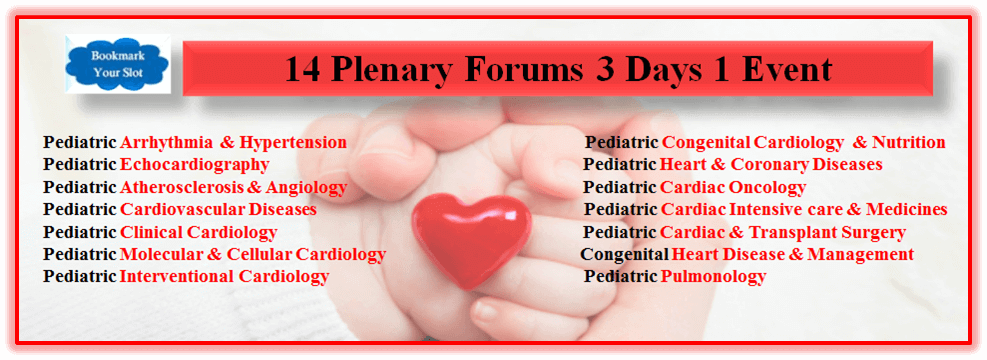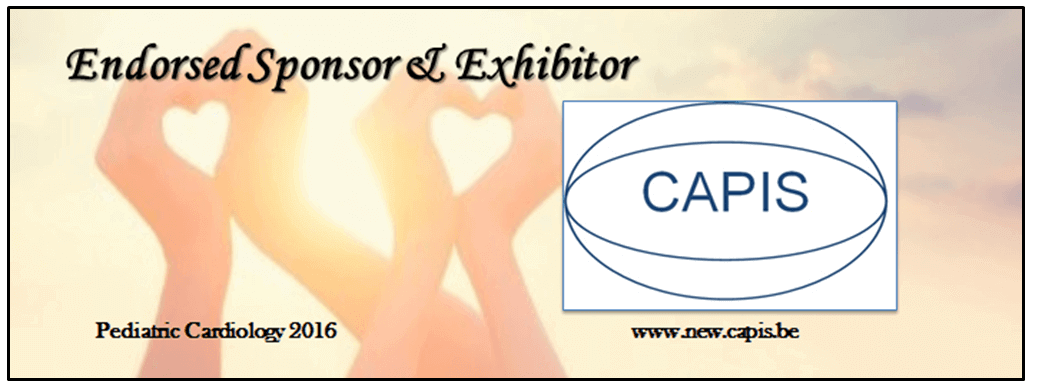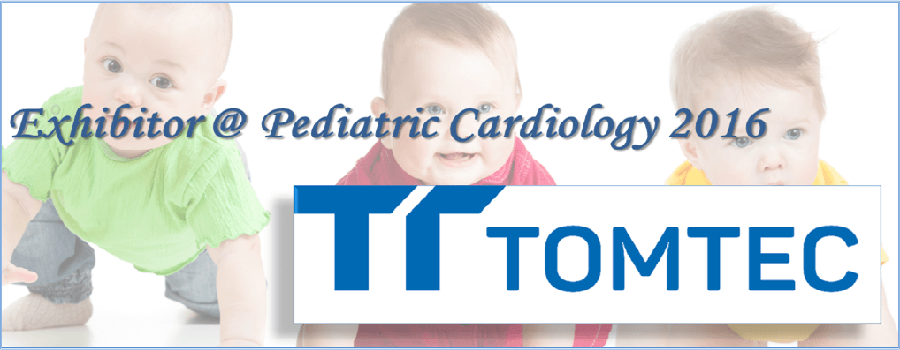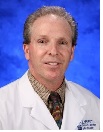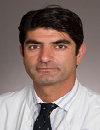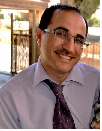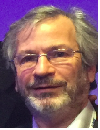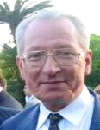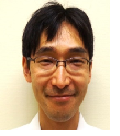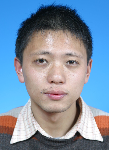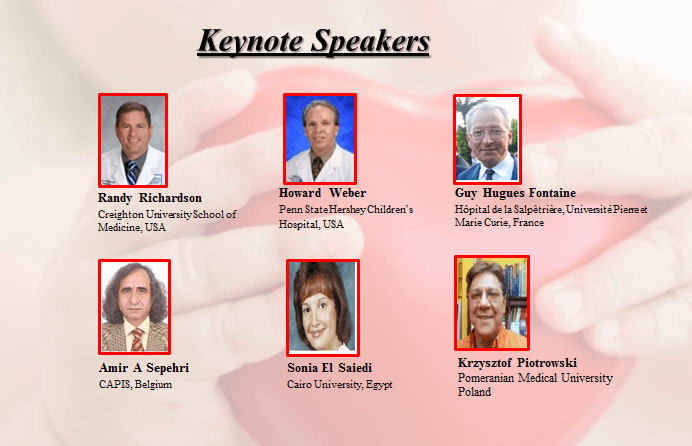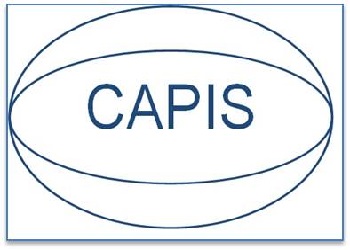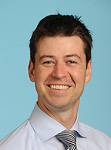Theme: Evolution of modern theories and therapies to save the children heart & Lungs
Pediatric Cardiology 2016
- Keynote Speakers
- Welcome Message by Prof. Guy Hugues Fontaine
- Sessions/Tracks
- About Conference
- Market Analysis

Track- 1: Pediatric Cardiology
In some cases, children are born with heart defects or abnormalities. Some popular Pediatric Cardiac Diseases are Cardiac Dysrhythmia i.e. an irregular heartbeat, which is either too fast as Bradycardia like or too slow as Tachycardia. If blood flow is not proper to the heart muscle then it is call Angina. Hypoplastic left heart syndrome is a complex and rare pediatric heart defect present at birth (congenital).
In childhood a disorder which involves both the heart and lungs problems, called Pediatric Cardiopulmonary disease. Epicardial adipose tissue (EAT) is the visceral fat deposit around the heart and is commonly increased in obese subjects. EAT is related to Cardio Metabolic risk factors and non-alcoholic fatty liver disease (NAFLD) in adults, but this relationship is not well known in children. (MI) Myocardial infarction is rare in childhood and adolescence. Children usually have either an acute inflammatory condition of the coronary arteries diseases or an anomalous origin of the left coronary artery (LCA). Peripheral vascular diseases (PVDs) are circulation disorders that affect blood vessels outside of the heart and brain. In PVD, blood vessels are narrowed. Narrowing is usually caused by arteriosclerosis. We will be discussed more about the common problem of the baby heart diseases as Cardiomyopathy, Myocarditis,, Hypoplastic Left Heart Syndrome, Hypertension, Heart Murmur, Cardiac Arrest, Pericarditis Effusion, Arrhythmogenic Right Ventricular Dysplasia, Cyanotic Heart Disease, and Pediatric Arrhythmia.
Related conferences: Pediatrics Conferences September 14-16, 2016 Amsterdam, The Netherlands; Pediatric Surgery Conferences September 14-16, 2016 Amsterdam, Netherlands; Pediatric Dermatology Conferences October 10-11, 2016 Manchester, UK; Neonatology Conferences November 14-16, 2016 Valencia, Spain; Neonatal Conferences November 14-16, 2016 Valencia, Spain; Pediatric Neurology Conference November 14-16, 2016 Valencia, Spain; International Conference on Interventional Cardiology, Sept 12-14, 2016 Berlin Germany; Pediatric and Adult Intervention Cardiac Symposium, September 18-21, 2015 Las Vegas, United States; 6th Asia Pacific Congenital & Structural Heart Intervention Symposium, September 25-27, 2015 Tokyo, Japan; Echocardiography in Pediatric and Adult Congenital Heart Disease, October 8-11, 2015, Phoenix, United States; Neonatal Cardiology & Haemodynamics Conference, October 12-14, 2015 Cleveland, United Kingdom; 11th Advanced Symposium on Pediatric Cardiovascular Imaging, October 16-18, 2015, Illonois, United States.
Track-2: Heart Surgery
Heart surgery is done to correct problems with the heart. After the medical approach or for the severe conditions cardiac surgery is the option to treat the cardiac diseases. Anaesthesiologist’s involvement for the purpose of diagnostic and interventional procedures in cardiac catheterization laboratory has been evolving particularly since last two decades. Sedation and Anaesthesia is requiring to unconscious the patient to precede the cardiac surgery. Cardiac surgical process includes various terms as cardiovascular surgery is surgery on the heart or great vessels performed by cardiac surgeons, Open heart surgery in the chest is cut open and surgery is performed on the muscles, valves, or arteries of the heart and Implantable Cardioverter Defibrillator (ICD) which is useful in preventing sudden death in patients with known, sustained ventricular tachycardia or atrial fibrillation. After the certain time the cardiac surgery, monitoring and the evolution is also important.
This tracks mainly discuss about the various surgical procedure are used to treat the cardiac problems as heart transplantation, modern beating heart surgery, neonatal heart surgery, ventricular septal defects surgery, rehabilitation and secondary prevention in cardiology, Pediatric cardiac emergency, transmyocardial revascularization (TMR), cardiac atherectomy, cardiovascular implant devices as well as patent ductus arteriosus and laparoscopy and the modern advancements in the surgical procedure.
Related Conferences: Pediatrics Conferences September 14-16, 2016 Amsterdam, The Netherlands; Pediatric Surgery Conferences September 14-16, 2016 Amsterdam, Netherlands; Pediatric Dermatology Conferences October 10-11, 2016 Manchester, UK; Neonatology Conferences November 14-16, 2016 Valencia, Spain; Neonatal Conferences November 14-16, 2016 Valencia, Spain; Pediatric Neurology Conference November 14-16, 2016 Valencia, Spain; 25th World Congress of The World Society of Cardio-Thoracic Surgeons, 19 - 22 September 2015, Edinburgh, United Kingdom ; AATS Aortic Symposium 2016, May 14 - 18, 2016, Baltimore, USA; Indian Association Of Cardiovascular And Thoracic Surgeons 62nd Annual Conference 2016 (IACTSCON 2016), February 18-21, 2016 Lucknow, India; PCR London Valves 2015, September 20, 2015, Berlin, Germany; German Society for Thoracic Surgery 24th Annual Meeting, 24 - 26 September 2015, Berlin, Germany.
Track- 3: Heart Transplantation
A heart transplant is a surgical procedure performed to remove the diseased heart from a patient and replace it with a healthy one from an organ donor. In order to remove the heart from the donor, two or more doctors must declare the donor brain-dead. Before a person can be put on a waiting list for a heart transplant, a doctor makes the determination that this is the best treatment option available for the person's heart failure. The most common reason is that one or both ventricles have aren't functioning properly and severe heart failure is present. Ventricular failure can happen in many forms of congenital heart disease, but is more common in congenital defects with a single ventricle or if long-standing valve obstruction or leakage has led to irreversible heart failure. While a heart transplant is a major operation, your chance of survival is good, with appropriate follow-up care.
Related Conferences: International Pediatrics Conferences September 14-16, 2016 Amsterdam, The Netherlands; Pediatric Surgery Conferences September 14-16, 2016 Amsterdam, Netherlands; Pediatric Dermatology Conferences October 10-11, 2016 Manchester, UK; Neonatology Conferences November 14-16, 2016 Valencia, Spain; Neonatal Conferences November 14-16, 2016 Valencia, Spain; Pediatric Neurology Conference November 14-16, 2016 Valencia, Spain; 2016 International Society for Heart & Lung Transplantation Academies, April 27-30, 2016, Shington, DC, USA; 14th Transplantation Science Symposium 2015, 11-13 November, Lorne , Australia; American Society Of Transplant Surgeons16th State 0f The Art Winter Symposium, January 14-17 Miami Beach, United States; Canadian Society Of Transplantation Annual Scientific Conference 2015, Oct 5-10, 2015 Banff, Canada; Indian Society of Organ Transplantation Annual Meeting 2015, 2-4 October 2015, Chennai, India; 6th Asia Pacific Congenital & Structural Heart Intervention Symposium, 25-27 September Tokyo, Japan.
Track- 4: Cardiac Diseases Pathophysiology
During the past decade, our understanding of the pathophysiology of coronary artery disease (CAD) has undergone a remarkable evolution. We review here how these advances have altered our concepts of and clinical approaches to both the chronic and acute phases of CAD. Previously considered a cholesterol storage disease, we currently view atherosclerosis as an inflammatory disorder. Aggressive management of modifiable risk factors reduces pediatric cardiovascular events and should accompany appropriate revascularization.
The main evaluation factors are Cardiovascular Biology, Cardiac Cachexia, Blood Cholesterol & Obesity, Family history, Cardiovascular Physiology and Computational Biology of Heart etc.
Related Conferences: Pediatrics Conferences September 14-16, 2016 Amsterdam, The Netherlands; Pediatric Surgery Conferences September 14-16, 2016 Amsterdam, Netherlands; Pediatric Dermatology Conferences October 10-11, 2016 Manchester, UK; Neonatology Conferences November 14-16, 2016 Valencia, Spain; Neonatal Conferences November 14-16, 2016 Valencia, Spain; Pediatric Neurology Conference November 14-16, 2016 Valencia, Spain; 6th Annual Scientific Meeting on Advances in the Pathogenesis and Management of Cardiovascular Disease, 27-27 November 2015, UK, London; Cardiovascular Development Meeting 04-06 Nov 2015, Amsterdam, Netherland; 5th Biennial Meeting of the International Society for Applied Cardiovascular Biology, Banff, Canada; Cardiovascular Disease Management: A Case-Based Approach, Phoenix, United States; 54th Congress of the Romanian Society of Cardiology, September 17-19,2015, Sinaia, Romania.
Track- 5: Cardiovascular Diseases
Cardiovascular Diseases are types of heart disease observed in children and adolescents. Rheumatic heart diseases are thought to result from an autoimmune response, but the exact pathogenesis remains unclear. As many as 39% of patients with acute rheumatic fever may develop varying degrees of pancarditis with associated valve insufficiency, heart failure, pericarditis, and even death.
This track include more about the acute coronary syndromes, Congestive Heart Failure, inflammatory heart diseases, Pediatric angina pectoris, ischaemic heart diseases, rheumatic heart diseases, valvular heart diseases, peripheral artery diseases, pulmonary embolism and vascular rings.
Related conferences: Pediatrics Conferences September 14-16, 2016 Amsterdam, The Netherlands; Pediatric Surgery Conferences September 14-16, 2016 Amsterdam, Netherlands; Pediatric Dermatology Conferences October 10-11, 2016 Manchester, UK; Neonatology Conferences November 14-16, 2016 Valencia, Spain; Neonatal Conferences November 14-16, 2016 Valencia, Spain; Pediatric Neurology Conference November 14-16, 2016 Valencia, Spain; 11th Asian Interventional Cardiovascular Therapeutics Congress, November 13-15, 2015 Dhaka, Bangladesh; 42nd Veith Annual Symposium on Vascular and Endovascular Issues November 17- 21, 2015 New York, United States; Controversies and Advances in the Treatment of Cardiovascular Disease: The Fifteenth in the series, November 19- 20, 2015 California, United States; Imperial Valve Cardiovascular Course November 26-28, 2015, London, United Kingdom; 4th European Middle East Forumo Cardiovascular Risks, November 27, 2015 Budapest, Hungary.
Track- 6: Coronary Heart Diseases
Coronary heart disease (CHD) is a disease in which a waxy substance called plaque (plak) builds up inside the coronary arteries. These arteries supply oxygen-rich blood to your heart muscle. When plaque builds up in the arteries, the condition is called atherosclerosis. The build-up of plaque occurs over many years. If blood flow is not proper to the heart muscle then it is call Angina. Hypoplastic left heart syndrome is a complex and rare heart defect present at birth (congenital). Over time, CHD can weaken the heart muscle and lead to heart failure and arrhythmias. CHD is the most common type of heart disease.
Main type of heart coronary diseases are; atrial septal defect, Cineangiography, ventricular septal defect, Coarctation of the aorta, transposition of the great arteries, tetralogy of Fallot, acquired heart diseases, aortic dissection, myocardial infarction, pleural effusion, Endocarditis, Atrial Fibrillation and atherosclerosis. About the sudden cardiac death (SCD) is the unexpected death caused by loss of heart function or cardiac stroke.
Related Conferences: Pediatrics Conferences September 14-16, 2016 Amsterdam, The Netherlands; Pediatric Surgery Conferences September 14-16, 2016 Amsterdam, Netherlands; Pediatric Dermatology Conferences October 10-11, 2016 Manchester, UK; Neonatology Conferences November 14-16, 2016 Valencia, Spain; Neonatal Conferences November 14-16, 2016 Valencia, Spain; Pediatric Neurology Conference November 14-16, 2016 Valencia, Spain;; 11th International Congress on Coronary Artery Disease (ICCAD 2015), 11–13 October 2015, Florence, Italy; 57th Annual World Congress-International College of Angiology, October 2-4, 2015 Jakarta, Indonesia; London Aorta Master Class, 8–9 October 2015, London, United Kingdom ; Venice Arrhythmias, October 16-18, Venice, Italy; LAA 2015 - Left Atrial Appendage November 20-21, 2015 Frankfurt, Germany.
Track- 7: Other Heart Diseases
Some miscellaneous cardiac diseases are cardiomegaly-an enlarged heart. But it's usually caused by high blood pressure (hypertension) or coronary artery disease. Marfan syndrome inherited genetic defect weakens connective tissues- including those in the heart. Cardio-metabolic risk refers to your chances of having diabetes, heart disease or stroke. Kawasaki disease is a rare childhood illness that affects the blood vessels. A rare birth defect, heterotaxy syndrome usually involves heart defects of varying types and severity.
Under this the major sub-track are cardiovascular diseases in diabetes, cardiovascular diseases in pregnancy, sports cardiology, non-coronary myocardial disease, infectious diseases of the heart, cardio-metabolic disorder, cardio oncology cerebrovascular diseases (stroke), Cardiopulmonary Resuscitation, Kawasaki disease, Marfan syndrome and heterodoxy syndrome.
Related Conferences: Pediatrics Conferences September 14-16, 2016 Amsterdam, The Netherlands; Pediatric Surgery Conferences September 14-16, 2016 Amsterdam, Netherlands; Pediatric Dermatology Conferences October 10-11, 2016 Manchester, UK; Neonatology Conferences November 14-16, 2016 Valencia, Spain; Neonatal Conferences November 14-16, 2016 Valencia, Spain; Pediatric Neurology Conference November 14-16, 2016 Valencia, Spain; Cardio-metabolic Health Congress, 21-24 October 2015, Massachusetts, United States; 13th Annual World Congress on Insulin Resistance, Diabetes & Cardiovascular Disease (WCIRDC), November 19-21, 2015, California, USA; RCSI Faculty of Sports and Exercise Medicine Annual Scientific Conference, September 17-19, 2015 Dublin, Ireland; Boot Camp in Onco-Cardiology, November 14, 2015, Huston, USA; Global Cardio-Oncology Summit October 15-16, 2015, Nashville, United States.
Track- 8: Diagnostic Techniques
Pediatric cardiologists are trained to diagnose and treat heart problems in infants, children and young adults. Severe heart disease generally becomes evident during the first few months after birth. Some babies are blue or have very low blood pressure shortly after birth. Other defects cause breathing difficulties, feeding problems, or poor weight gain. Pediatric cardiologists are help to diagnose the heart diseases based on the medical and family histories, risk factors, a physical exam, and the results from tests and procedures as pediatric Echocardiography that is very basic test to check whether heart is having any problem or not. After the diagnosis only patient risk factor will determine and treatment will start.
The various diagnosis tests are used for specially heart disease as Pediatric angiocardiography, cardiac solography, electrophysiology test, heart MRI, Fetal echocardiography, Pediatric Interventional Cardiology endothelial function evaluation, electrophysiological studies, blood pressure monitoring and Pediatric nuclear cardiology etc. Pediatric nuclear cardiology studies use non-invasive techniques to assess myocardial blood flow, evaluate the pumping function of the heart as well as visualize the size and location of a heart attack.
Related Conferences: Pediatrics Conferences September 14-16, 2016 Amsterdam, The Netherlands; Pediatric Surgery Conferences September 14-16, 2016 Amsterdam, Netherlands; Pediatric Dermatology Conferences October 10-11, 2016 Manchester, UK; Neonatology Conferences November 14-16, 2016 Valencia, Spain; Neonatal Conferences November 14-16, 2016 Valencia, Spain; Pediatric Neurology Conference November 14-16, 2016 Valencia, Spain; World Summit on Echocardiography, October 11-15, 2015, Beijing, China; American Society of Nuclear Cardiology, September 17-20, Washington, USA; 3D Echo 360: From Innovation to Practice, 25–27 September 2015, Padua, Italy; 34th Annual Echocardiography Symposium, 25-26 September 2015, Miami, USA; Nordic Symposium on Cardiac CT Oct 01-02, 2015, Nyborg, Denmark.
Track-9: Interventional Cardiology
Interventional cardiology refers to diagnostics and non-surgical treatments of the heart. Cardiac interventions are used to diagnosis and treat many types of heart disease. Stanford interventional cardiology is a world leader in percutaneous coronary revascularization, which re-establishes blood flow to the heart when its vessels have been damaged or blocked. Each year, the staffs of the Section of Invasive and Interventional Cardiology see thousands of patients with almost every kind of heart disease. Our interventionists treat people of all ages from around the world who have serious, sometimes life-threatening, cardiac conditions.
Related Conferences: Pediatrics Conferences September 14-16, 2016 Amsterdam, The Netherlands; Pediatric Surgery Conferences September 14-16, 2016 Amsterdam, Netherlands; Pediatric Dermatology Conferences October 10-11, 2016 Manchester, UK; Neonatology Conferences November 14-16, 2016 Valencia, Spain; Neonatal Conferences November 14-16, 2016 Valencia, Spain; Pediatric Neurology Conference November 14-16, 2016 Valencia, Spain; Multi-modality Cardiovascular Imaging for the Clinician, October 9-11, 2015 Houston, Texas; Transcatheter Cardiovascular Therapeutics, San Francisco October 11-15, 2015,Caliorna, USA Colegio Argentino de Cardioangiólogos Interventionists, September 22, 2015 Buenos Aires, Argentina; 26th Great Wall International Congress of Cardiology & Asia Pacific Heart Congress 2015 October 29, 2015 - November 1, 2015 Beijing, China.
Track- 10: Advance Therapies
The early medical management of Heart Failure in infancy, childhood, and adolescence is necessary to save a child life. Pharmacologic therapy represents the mainstay of treatment for heart failure in children. Regenerating heart tissue through stem cell therapy is the new technique to cure the heart diseases.
Other than the use of cardiac drugs, one therapy call, stem cell therapy and most commonly medicine use to treat or prevent the cardiac diseases are diuretics, angiotensin-converting enzyme inhibitor, beta blockers, cardiac glycosides, antiplatelet agent, inotropic therapy, statins or cholesterol reducing drugs, prostaglandins inhibitors, angiotensin receptor blockers etc. These are the main category of medicines used to treat the heart diseases.
Related Conferences: Pediatrics Conferences September 14-16, 2016 Amsterdam, The Netherlands; Pediatric Surgery Conferences September 14-16, 2016 Amsterdam, Netherlands; Pediatric Dermatology Conferences October 10-11, 2016 Manchester, UK; Neonatology Conferences November 14-16, 2016 Valencia, Spain; Neonatal Conferences November 14-16, 2016 Valencia, Spain; Pediatric Neurology Conference November 14-16, 2016 Valencia, Spain;; Complex Cardiovascular Therapeutics, October 29-31, 2015, Kobe, Japan; 6th Francophone Congress of Interventional Cardiology, November 04-06, 2015 Paris, France; Left Atrial Appendage Closure, November 20 – 21, 2015 Frankfurt, Germany; 7th Annual Coronary CTA in the Emergency Department: Hands-on Workshop, 14–15 November 2015, Miami Beach, USA; 64rd Annual Scientific Meeting of the Cardiac Society of Australia & New Zealand, Adelaide, Australia, August 03- 07, 2016.
Track- 11: Advances in Cardiac Operation
Surgeons have tried for centuries to help patients suffering from heart disease or trauma, but only recently has their desire been matched by knowledge, experience and technology. Recently many new and important reports about advances in cardiac surgery have been presented. With respect to congenital heart disease, coronary artery diseases, Valvular disease, novel surgeries, atrial fibrillation and therapeutics are introduced according to recent report. The related subtopics are medical apparatus an instruments are presented as septation of single ventricle with double-patch procedure, anatomical repair for Epstein’s anomaly, gene therapy, stem cell therapy, trans-catheter aortic valve implantation, minimally invasive heart bypass surgery, radiofrequency ablation, artificial pacemaker, cardiac rehabilitation and valve-sparing aortic root replacement.
Related Conferences: Pediatrics Conferences September 14-16, 2016 Amsterdam, The Netherlands; Pediatric Surgery Conferences September 14-16, 2016 Amsterdam, Netherlands; Pediatric Dermatology Conferences October 10-11, 2016 Manchester, UK; Neonatology Conferences November 14-16, 2016 Valencia, Spain; Neonatal Conferences November 14-16, 2016 Valencia, Spain; Pediatric Neurology Conference November 14-16, 2016 Valencia, Spain;; CARDIOTECHNIX 2015 — 3rd International Congress on Cardiovascular Technologies, 16-17, November 2015 Lisbon, Portugal; Congenital Heart Surgeons Society Annual Conference, Oct 25-26, 2015 Rosemont, United States; Australasian Society for Stem Cell Research (ASSCR) 8th Annual Meeting, November 08-10, 2015, New South Wales, Australia; 67th Annual Conference of Cardiology Society of India-2015, December 5-6, 2015, Chennai, India; 7th Annual Coronary CTA in the Emergency Department: Hands-on Workshop, Miami Beach, United State, November 14 & 15, 2015.
Track-12: Pediatric Heart Catheterization
Cardiac catheterization of infants and children is a highly specialized procedure, which is performed in selected circumstances for additional diagnostic information. In addition, an increasing number of cardiac catheterization procedures are therapeutic and permanently correct or improve the underlying congenital heart condition, avoiding the need for open-chest surgery. Electrophysiological catheterization procedures allow detailed investigation of heart rhythm abnormalities, and ablation procedures cure certain abnormal heart rhythms. Cardiac catheterization is what is called an invasive procedure, meaning it involves going into the body through the skin. However, it is a minimally invasive procedure and is not considered "open" surgery since it's performed without making any large incisions. Usually the only sign that a person has had the procedure is a small puncture hole where the catheter was inserted, usually in the groin area, but sometimes in the arm or neck.
Related Conferences: Pediatrics Conferences September 14-16, 2016 Amsterdam, The Netherlands; Pediatric Surgery Conferences September 14-16, 2016 Amsterdam, Netherlands; Pediatric Dermatology Conferences October 10-11, 2016 Manchester, UK; Neonatology Conferences November 14-16, 2016 Valencia, Spain; Neonatal Conferences November 14-16, 2016 Valencia, Spain; Pediatric Neurology Conference November 14-16, 2016 Valencia, Spain;; Asia Oceania Congress of Nuclear Medicine and Biology, October 31 - November 4, 2015 Jeju, Korea; Coronary CTA in the Emergency Department Hands-on Workshop, November 14 & 15, 2015 Miami Beach, USA; Radiological Society of North America, November 29- December 4, 2015 Chicago, USA; TCT 2015– Transcatheter Cardiovascular Therapeutics, October 11-15, 2015 San Francisco, CA, United State; 2nd Annual Case-Based Coronary and Structural Heart Intervention Update, November 14, 2015 Chicago, USA; Outpatient Endovascular and Interventional Society (OEIS) 3rd Annual Meeting, April 28-30, 2016 Miami Beach, FL, USA.
Track-13: Cardiac Critical Care
The cardiac critical care unit is staffed by a multidisciplinary team of health care providers who work collaboratively to provide high quality care for this critically ill patient population. The team includes an attending cardiologist, a pulmonary critical care intensivist, an attending physician specializing in heart failure and a cardiac fellow-in-training. The Cardiac Intensive Care Unit (CICU) looks after people who are seriously ill with heart or lung problems. It normally takes patients who have just come out from the operating theatre – up to eight a day. Purpose-built and specially designed for intensive care patients, the Cardiac Intensive Care Unit opened in Southampton General Hospital's £60m North Wing in 2007. The 15-bed unit (which has the capacity eventually to care for 16 ICU patients) is close to the Wessex Cardiac Unit's state-of-the-art catheter labs, operating theatres and dedicated cardiac MRI scanner. Patients have one-to-one care from a specialist nurse, and the unit prides itself on its highly trained multi-disciplinary team. Physiotherapists, dieticians, consultants, nurses and administrative staff all work together to deliver a high level of care to patients.
Related conferences: Pediatrics Conferences September 14-16, 2016 Amsterdam, The Netherlands; Pediatric Surgery Conferences September 14-16, 2016 Amsterdam, Netherlands; Pediatric Dermatology Conferences October 10-11, 2016 Manchester, UK; Neonatology Conferences November 14-16, 2016 Valencia, Spain; Neonatal Conferences November 14-16, 2016 Valencia, Spain; Pediatric Neurology Conference November 14-16, 2016 Valencia, Spain;; PCICS 11th International Meeting, December 10-11 Texas, USA; 4th European Conference on Paediatric and Neonatal Cardiac Intensive Care, 9-12 September 2015 Montreux, Switzerland; 12th Annual Cardiovascular-Thoracic (CVT) Critical Care 2015, Oct 1-3, 2015 Washington, USA; Czech Society Of Anaesthesiology And Intensive Care Medicine Annual Conference 2015, November 4, 2015 - November 5, Plzeň , Czech Republic;18th Anaesthesia, Critical Care and Pain Forum 2015, Albufeira, Portugal; European Society of Intensive Care Medicine 28th Annual Congress 2015, 3 Oct - 7 Oct Berlin, Germany.
Track- 14: Clinical Pediatric Cardiology
Research in Cardiology field comprises all aspects related to the physiology and pathology of the structure and function of the heart and the cardiovascular system, including their regulation by neuronal and humoral mechanisms, cardiovascular safety pharmacology etc. To see the drug effects on heart, scientists prefer to do clinical trials on the animals. Because of long term Pediatric Malnutrition also cardiac disorder will develop in body. With the international Pediatric Cardiology 2016 Meetings or events we will get to know about the new advancements coming from different research in cardiology field.
This session mainly focus on the research on cardiology filed as clinical monitoring, case studies, cardiovascular genetics, adverse drug reaction, clinical trial management system, and experimental models of cardiovascular diseases.
Related Conferences: Pediatrics Conferences September 14-16, 2016 Amsterdam, The Netherlands; Pediatric Surgery Conferences September 14-16, 2016 Amsterdam, Netherlands; Pediatric Dermatology Conferences October 10-11, 2016 Manchester, UK; Neonatology Conferences November 14-16, 2016 Valencia, Spain; Neonatal Conferences November 14-16, 2016 Valencia, Spain; Pediatric Neurology Conference November 14-16, 2016 Valencia, Spain; 6th Euro-Global Summit on Toxicology and Pharmacology , October 27-29, 2016 Rome, Italy; Biennial Meeting of the International Society for Applied Cardiovascular Biology, September 7-10, 2016, Banff, Canada; 2nd Annual Stakeholder Conference Patient-Centered Clinical Trials, October 19–20 2015, Philadelphia, USA; International Cardiovascular Genetics Conference May 25 - 27 , 2016, Brisbane, Australia; 2nd Annual Stakeholder Conference Patient-Centered Clinical Trials, Philadelphia, USA, October 19-20, 2015; International Conference on Phase 1 and Early Phase Clinical Trials, Tsim Sha Tsui, Hong Kong, 20 - 21 November, 2015.
Track- 15: Pediatric Surgeon Meeting
Pediatric Cardiology-2016 welcomes all the Pediatricians, Cardiologists, Researchers, Student Communities, Academic & Business Delegates from Medical, Health Care institutions to join this conference in Las Vages, USA. The Conference provides an excellent opportunity to share, exchange knowledge and establish research collaborations and networking. Pediatric Cardiology-2016 is an initiative to bring together the diverse communities working in the field of cardiology to help millions of children fighting with heart diseases, for better treatment and medication alternatives.
Related Conferences: Pediatrics Conferences September 14-16, 2016 Amsterdam, The Netherlands; Pediatric Surgery Conferences September 14-16, 2016 Amsterdam, Netherlands; Pediatric Dermatology Conferences October 10-11, 2016 Manchester, UK; Neonatology Conferences November 14-16, 2016 Valencia, Spain; Neonatal Conferences November 14-16, 2016 Valencia, Spain; Pediatric Neurology Conference November 14-16, 2016 Valencia, Spain;; 49th Annual Southeast Pediatric Cardiology Society Conference, September 25-26, 2015, Birmingham, AL USA; Joint Conference on Advances in Pediatric Cardiovascular Disease Management, MIAMI, USA, September 17-20, 2015; 45th Nordic Paediatric Cardiology Meeting, 09/09/2015-11/09/2015, Oslo, USA; 39th Annual Midwest Pediatric Cardiology Society Annual Meeting, September 10-11, 2015, Illinois, USA; 48th Annual Southeast Pediatric Cardiology Society (SPCS) Conference, September 25-26, 2015, Alabama, USA.
2nd Global Congress and Expo on Pediatric Cardiology & Healthcare will be hosted at Las Vegas, USA during September 22-24, 2016, with the innovative theme “Evolution of modern theories and therapies to save the children heart & lungs”.
Pediatric Cardiology-2016 mainly focuses on spreading the awareness about challenges in this field and how to prevent the cardiac diseases. We are awaiting a great scientific faculty from USA, Europe as well as other continents and expect a highly interesting scientific as well as a representative event. The short name for this event is Pediatric Cardiology 2016. We organizes a conference series of 1000+ Global Events inclusive of 300+ Conferences, 500+ Upcoming and Previous Symposiums and Workshops in USA, Europe & Asia with support from 1000 more scientific societies and publishes 700+ Open access journals which contains over 30000 eminent personalities, reputed scientists as editorial board members.
Why to attend???
With members from around the world focused on learning about various Pediatric cardiac diseases and how to prevent the cardiac disorders .This is your best opportunity to reach the largest assemblage of participants from the entire world. At the Pediatric cardiology conferences and from the eminent people speech, you can update your knowledge about current situation of Pediatric cardiology and receive name recognition at this 3-day event. World-renowned speakers, the most recent techniques, stactics, and the newest updates in Pediatric Cardiology fields are hallmarks of this conference.
Target Audience:
- Pediatric Cardiologists
- Pediatric Pulmonologists
- Paediatricians
- Pediatric Nurses
- Pediatric Cardiac Physicians
- Pediatric Heart Specialists
- Pediatric Cardiology Students, Scientists
- Pediatric Cardiology Researchers
- Pediatrics Faculty
- Medical Colleges
- Pediatric Cardiology Associations and Societies
- Manufacturing Medical Devices Companies
- Data Management Companies
2nd Global Congress and Expo on Pediatric Cardiology & Healthcare will be hosted at Las Vegas, USA during September 22-24, 2016, with the innovative theme "Evolution of modern theories and herapies to save the children heart & lungs". This conference mainly focuses on spreading the awareness about challenges in this field and how to prevent the cardiac diseases. We are awaiting a great scientific faculty from Europe as well as other continents and expect a highly interesting scientific as well as a representative event. The short name for this event is Pediatric Cardiology 2016.
Importance & Scope:
Pediatric Cardiologists care for patients with congenital or acquired cardiac and cardiovascular abnormalities. The scope of Pediatric Cardiology practice is extensive. Pediatric Cardiologists evaluate and care for fetuses, neonates, infants, children, and adolescents. Special areas of clinical and academic interest include: Intensive Cardiac Care, Cardiac Catheterization and Intervention, Electrophysiology, Heart MRI, Fetal Pediatric Cardiology, Heart Anatomy, Exercise Physiology, Preventive Pediatric Cardiology, Patent Ductus Arteriosus, Supraventricular Tachycardia, Cardiac Failure and Transplantation, and Pulmonary Hypertension.
Congenital heart disease (CHD) is the type of heart disease that a baby is born with. In reality, it is a defect, or abnormality of the heart or blood vessels near the heart, and not a disease, so many people use the term “congenital heart defect”. The majority of children born today with CHD will survive and with proper treatment be able to lead a normal or near-normal life. Some kinds of CHD are mild and may not be diagnosed in infancy. Heart Murmurs is also very common disorder soon after birth.
With the international Pediatric cardiology Congress, we will expect the expert gathering from Universe so that new idea or new research will come with discussion at the conference and that will be fruitful to children suffering from cardiac diseases or the prevention of cardiac diseases.
Why Las Vegas (Nevada)?
The United States is a one of developed country and has the world's largest economy by nominal and real GDP, benefiting from an abundance of natural resources and high worker productivity. While the U.S. economy is considered post-industrial, the country continues to be one of the world's largest manufacturers as well as leader in scientific research and technological innovations. USA having 15-20 associations related to heart diseases and related researchers are working hard to combat childhood obesity throughout the state, which can be leads to Heart diseases.
The "Children's Heart Center of Nevada Pediatric Research Fund," in the amount of $100,000 over 10 years, will be used to stimulate new research activities among faculty, according to David Gremse, M.D., chair of the School's pediatrics department in Las Vegas. Children's Heart Center serves Nevada with five offices in Southern and Northern Nevada as well as various outreaches clinics. No child in need of services is turned away for any reason. Nevada has 194 active physicians per 100,000 people. The average U.S. rate is more than 260 doctors per 100,000. The Nevada State Medical Association estimates a need for almost double the number of primary care physicians, not including specialists or subspecialists, in the next 15 years. According to the Dartmouth Institute of Health Policy and Clinical Practice, a coalition to study health care, there are 9.6 pediatricians per 100,000 people in Reno and 8.8 primary care pediatricians per 100,000 in Las Vegas. With the national average of 15 pediatricians per 100,000 people — 32 per 100,000 in San Francisco — estimates show that Nevada could easily accommodate twice as many pediatricians.
Moreover, Las Vegas is the most populous city in the U.S. state of Nevada, the seat of Clark County, and an internationally renowned major resort city for gambling, shopping and fine dining. Las Vegas, which bills itself as The Entertainment Capital of the World, is famous for the number of casino resorts and associated entertainment.
Associations & Society Associated with Pediatric Cardiology in Las Vegas:
- Nevada State Medical Association
- Las Vegas American Medical Association
- Southwest Medical Association
- American Medical Group Association
Associations & Society Associated with Pediatric Cardiology in USA:
- Pediatric Cardiology Associates of WNY
- American Heart Association
- American Society for Echocardiography Conferences
- American Association of Heart Failure Nurses (AAHFN)
- American Society of Nuclear Cardiology (ASNC)
- Northeast Pediatric Cardiology Nurse Association
- Pediatric Cardiology Medical Associates of Southern California
- Children's Cardiology Associates, Texas
- American Society of Preventive Cardiology
- American Society of Echocardiography (ASE)
- Alliance of Cardiovascular Professionals (ACVP)
- Society of Invasive Cardiovascular Professionals (SICP)
- Cardiovascular Credentialing International (CCI)
Associations & Society Associated with Pediatric Cardiology Worldwide:
- Canadian Association of Interventional Cardiology (CAIC)
- Pediatric Cardiology Associates
- The Pediatric Cardiac Intensive Care Society
- The Association for European Paediatric and Congenital Cardiology
- European Society of Cardiology
- Pediatric Cardiology Medical Associate
- International Pediatric Association
- The World Federation of Associations of Pediatric Surgeons
- International Pediatric Association Zurich
- American Academy of Pediatrics
- Pediatric Congenital Heart Association
- Pediatrix Cardiology Associates of New Mexico
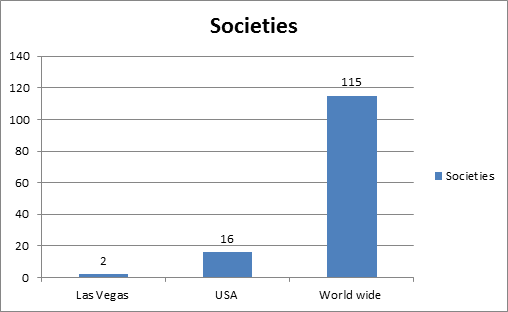
Universities Associated with Pediatric Cardiology in Las Vegas:
- University of Nevada
- Touro University Nevada
- Kaplan College
Universities Associated with Pediatric Cardiology in USA:
- University of Alabama
- Midwestern University
- University of Southern California
- Stanford University
- Western University of Health Sciences
- Emory University
- Yale University
- University of Pennsylvania
- Columbia University
- Duke University
- University of Texas
- Brown University
- University of Chicago
Universities Associated with Pediatric Cardiology Worldwide:
- University of Alabama School of Medicine
- University of Arizona College of Medicine
- University of Oxford
- University of Toronto
- Monash University
- The University of Western Australia
- The University of Melbourne
- The University of Tokyo
- Yonsei University
- University of Tsukuba
- University of Calgary
- California Northstate University College of Medicine
- Stanford University School of Medicine
- Universita Cattolica del Sacro Cuore
- La Sapienza University
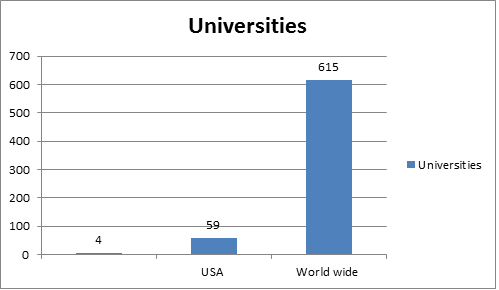
Hospitals Associated with Pediatric Cardiology in Las Vegas:
- Sunrise Children's Hospital
- Summerlin Hospital Medical Center
- Children's Hospital of Nevada
- Kindred Hospital Las Vegas-Sahara
Hospitals Associated with Pediatric Cardiology in USA:
- Cincinnati Children's Hospital Medical Center
- Children's Hospital of Philadelphia
- Children's Hospital of Wisconsin, Milwaukee
- Children's Hospital Colorado, Aurora
- Children's Hospital of Pittsburgh of UPMC
- Texas Children's Hospital, Houston
- University of Michigan C.S. Mott Children's Hospital, Ann Arbor
- Nationwide Children's Hospital, Columbus, Ohio
- Ann & Robert H. Lurie Children's Hospital of Chicago
- Boston Children's Hospital
Hospitals Associated with Pediatric Cardiology Worldwide:
- USA Children's & Women's Hospital
- Phoenix Children's Hospital Foundation
- UC Davis Children's Hospital
- Shriners Hospitals for Children
- University of Iowa Children's Hospital
- St. Louis Children's Hospital
- Royal Children's Hospital, Parkville
- Children's Hospital of Western Ontario
- Alder Hey Children's Hospital - Liverpool
- Centennial Hills Hospital
- Valley Hospital Medical Center
- North Vista Hospital
- South Lyon Medical Center
- Horizon Specialty Hospital
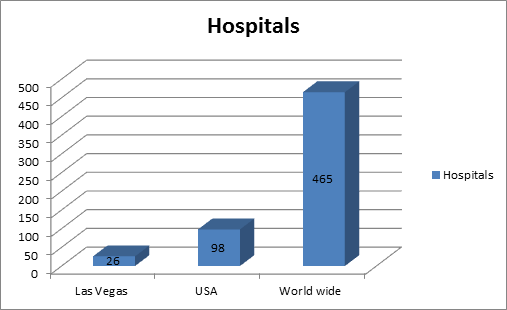
Industries Associated with Pediatric Cardiology in Las Vegas:
- CardioVascular BioTherapeutics
- Idexx Laboratories
- Research and Diagnostic Antibodies
- Varian Medical Systems
- DSX Therapeutics
Industries Associated with Pediatric Cardiology in USA:
- Charles River Laboratories
- Spectrum Pharmaceuticals
- PDL BioPharma
- Sierra Sciences
- Boehringer Ingelheim
- Sanofi Aventis / Pasteur
- MDS PharmaServices
- GlaxoSmithKline
- PharmaResearch
- Roxanne Laboratories
Industries Associated with Pediatric Cardiology Worldwide:
- MEDNAX, Inc
- AstraZeneca
- Sanofi
- Boehringer Ingelheim
- Roche
- Bristol-Myers Squibb
- United Therapeutics
- Astellas
- Actelion
- Merck & Co.
- Takeda
- Otsuka
- Gilead Sciences
- Johnson & Johnson
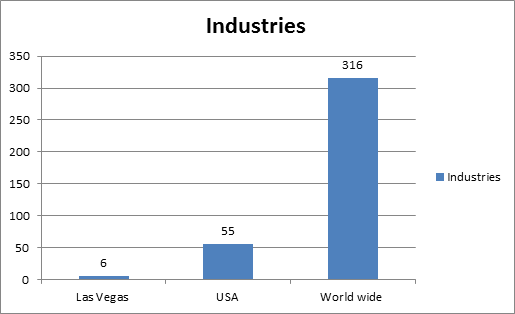
Estimated market growth of Pediatric Cardiology:
The North American interventional cardiology devices market is expected to reach $5,947.5 million by 2018. Global Interventional Cardiology market is estimated to reach US$22.2 billion by 2016. Global Interventional Cardiac Devices Industry market is worth US$20.6 billion by 2016, growing 9.2% for the analysis period 2012-2018 respectively.
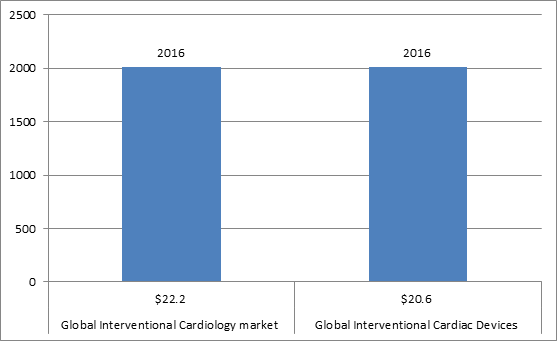
Products Manufactured by the industry related Pediatric Cardiology Research and its Market Value:
For children with in-hospital pVT/VF, lidocaine use was independently associated with improved ROSC and 24-h survival. Amiodarone use was not associated with superior rates of ROSC, survival at 24 h. Neither drug was associated with survival to hospital discharge. These are some more popularly used drug for cardiac diseases.
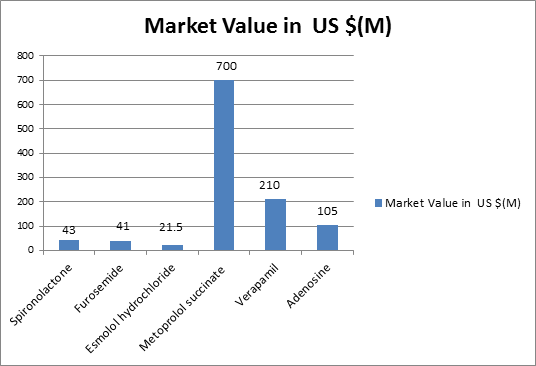
Fund Allotment (in Million Dollars) to Pediatric Cardiology Research:
These are the find allotted by NIH in various years to cardiology research department. The Children’s Heart Foundation has over $6.3 million to 58 basic science, translational and clinical CHD research projects at leading research centers across the US and Canada. The Israeli Ministry for Regional Cooperation has committed NIS 1 million (some $260,000) to supporting life-saving heart surgery for 100 Iraqi, Palestinian and Jordanian children in the coming year.
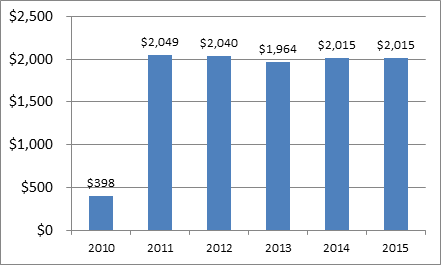
Statistics of Physicians, Researchers and Academicians working on Pediatric Cardiology Research:
The main part of the world associated with Pediatric Cardiology field are Directors, Heads, Deans, Professors, Scientists, Researchers, Doctors, Students and Writers of Pediatric Cardiology Department as well as Founders and Employees of the related companies, Associations members, related organizations, laboratories members etc.
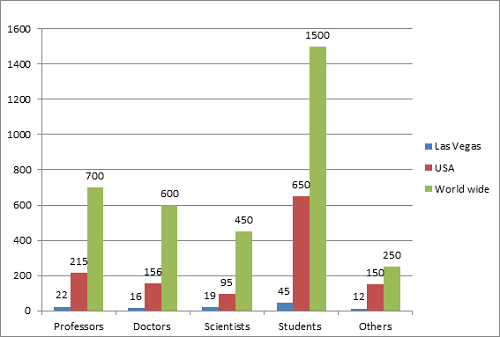
Conference Highlights
- Pediatric Cardiology
- Cardiac Diseases Pathophysiology
- Cardiovascular Diseases
- Coronary Heart Diseases
- Other Heart Diseases
- Echocardiography & Other Diagnosis
- Advance Therapies
- Advances in Cardiac Operation
- Clinical Pediatric Cardiology
- Pediatric Surgeons Meeting
- Heart Surgery
- Cardiac Critical Care
- Pediatric Heart Catheterization
- Interventional Cardiology
- Heart Transplantation
- Pediatric Pulmonology
To share your views and research, please click here to register for the Conference.
To Collaborate Scientific Professionals around the World
| Conference Date | September 22-24, 2016 | ||
| Sponsors & Exhibitors |
|
||
| Speaker Opportunity Closed | Day 1 | Day 2 | Day 3 |
| Poster Opportunity Closed | Click Here to View | ||
Useful Links
Special Issues
All accepted abstracts will be published in respective Our International Journals.
- Cardiovascular Pharmacology: Open Access
- Pediatrics & Therapeutics
- Journal of Cardiovascular Diseases & Diagnosis
Abstracts will be provided with Digital Object Identifier by



